|
My youngest sister had struggled with cancer since 2019. She passed away on January 28th 2022 @ 2:53pm.
Valentine’s Day was approaching but it was the last thing on my mind. I remembered that she had always sent me a Valentine; usually home made. She was the only member of my family who did. Many times I had told her she didn’t have to go to all that trouble but she did it anyway, year after year. This year would be different, there would be no Valentines. Then our doorbell rang and my husband answered. All I could do was hear their conversation. Our caller was a little neighbor girl. The sound of her small voice reminded me of my sister. She presented us with some cookies and her hand-painted card. “I thought you would like these;” she said. We had never received a Valentine gift from them before. My husband handed the bag to me. I ate a cookie and cried; it was just like my sister used to make. This gift was “ordered” from beyond and arrived at my lowest point: one final Valentine. Love is stronger than death. This event made me think about my work with caregivers. How does the process of caregiving’s end impact them? A caregiver, whose recipient dies, has a loss of role as well as a loss of a loved one. Society isn’t always helpful; “Why don’t you go out and celebrate your freedom?” [from caregiving] How would you respond when you’re in mourning? Some people inquire about the caregiver’s next career move; “Are you going to go get a job?” Many caregivers have had to give up promotions, to preserve their caregiving role. They re-enter the workforce with a financial deficit. Caregivers need to re-enter the workforce but how and where? What skills do they need now? Where are the new jobs? Thus, former caregivers face a more uncertainly-funded retirement. Wouldn’t you feel lost when you realized that work-life, and former friends have moved on? Do these conditions make a former caregiver want to celebrate; or to wonder where to turn? (!) Still, there is the ever-present grief. Some cultures weave that process into a ceremony. Ceremony helps in two ways, it commemorates and encapsulates. Commemoration seems obvious; like saying a prayer or lighting a candle. Encapsulation isn’t as obvious. Once the candle is lit or the prayer said; it’s done. Once a physical action expressed the emotions of the Caregiver its performance holds those feelings. Caregivers need to be honored and recognized for their loss as well their service. The emotion becomes action; as the action contains the emotion. Giving emotion a place and holding it, frees energy to devote to caregiver re-entry. Paid caregiving staff would benefit from recognition as well. I attended a funeral for an elder who had full-time care at home. The family, wisely, invited the former care staff to the funeral and the meal-of-condolence afterwards. Family members introduced the staff to various mourners. That’s not only kind; it’s necessary. Paid staff can become attached to their elders. “They also serve who only stand in wait”* (on the elder). Would our society attract better caregiving staff if they knew they would be recognized for their service? Transitions from caregiving require time, and money. That same family paid each staff member for two weeks in addition to their time at the funeral. Hooray! They need to find another job. How would one leap to a new job in 24 hours? Former family caregivers find their service is considered “time-off” by employers! Really! Managing elder care takes skill and coordination; valuable traits. Getting the elder to cooperate with care is an art; like that of negotiation. It’s time to see caregiving as a valuable experience. Family caregivers need the same things but there is no system for them. Military personnel, re-entering civil life, can get help with training, and support. These processes of loss, grief and rebuilding in caregivers goes unrecognized by society; leaving them isolated. As the GIs returned from WWII, there was the 52-40 club. Each person got $40.00 for 52 weeks. There is no such program for former caregivers. Why not? Oh NO! Such a program would cost money! Family caregivers usually serve for free. They SAVE over $10 billion dollars for our society. If we had to fund that care, our country would be in serious trouble. If we had a caregiver re-entry program it would be a WIN, WIN, WIN. First Win: We could incorporate already-existing social structure like churches, to incorporate caregiving recognition and support into their mission. Former caregivers could pass on their acquired wisdom to support new caregivers. Second Win: Money spent on education for former caregivers pays off in better wages earned and more tax revenue for society Third Win: Former caregivers, who are better able to recoup their lost earnings, would be less likely to require public assistance in their old age. A former caregiver re-entry program wouldn’t cost, it would pay. * A Tale of Two Cities, Charles Dickens
0 Comments
“‘This will be catastrophic’: Maine families face elder boom, worker shortage in preview of nation’s future,” from The Washington Post, could be a description of a dystopian movie: it’s not. This is the state of State of Maine, which is the harbinger of things to come for the rest of these 50 United States. We need to listen to this alarm.
We’re facing a demographic dilemma: not enough young people to fill all jobs, even those outside of elder care. We need them now! Where do we get them? We can’t hire them because they were never born! Thus, current workers remain on the job long after it’s safe or appropriate. Results include accumulated injuries to workers who keep doing injurious jobs. Even the field of healthcare can’t find enough workers or volunteers. The State of Maine has learned that there is no one available to fill home care jobs. There is no one to fill care facility jobs either. Professional fields have the same problem; many of the number of nurses and doctors are now older and there are not enough of them it is and there’s no one to replace them. Medicaid pays far less than other employers, drawing the few workers away from elder care. However, simply raising wages won’t help if there are not enough people to hire! Maine is already experiencing the results, some facilities closed altogether. Others closed admissions for months due to too few staff. No vacancies in care facilities means families must place their loved ones wherever they can. A loved one far away means a l-o-n-g commute to visit. Younger, disabled people also get caught in this care-crunch. If no one is available, some adult children try to fill the gap. Those care gaps further pressure the few remaining working adult children. Keep this number in mind: *By 2030, 1 in 5 Americans will be over 60. *The number of seniors will DOUBLE between 2015 and 2050. *The senior population over 85 will TRIPLE in that same period. **We will need 7.8 MILLION new people to fill these jobs. Since we didn’t give birth to them; where do we get them? This isn’t as riveting as a news story as a fire, or a shooting, that’s the problem. The numbers of affected families are there, but they aren’t collected (aggregated). This problem is spread everywhere. We’re in a presidential campaign yet no candidate is talking about this national problem. Why? This demographic dilemma is happening one family at a time: Your family is next. The Reuter's article, U.S wages lost to unpaid family care to hit $147 billion by 2050, describes lost wages and pressure on caregivers to switch to part time work or quit all together. These are definable numbers which the article describes well. One doesn’t hear enough about these issues and costs in the news media. I call upon anyone who knows a caregiver to insist on better public discussion on these caregiving issues/ costs/pressures.
I've always worried that caregivers also lost opportunity as well as wages. They are less likely to be offered new projects at work which can polish one's resume. They can’t take the lateral move which puts the employee in line to move up in a branch of the organization. A promotion comes with more demands on time and a different schedule. How can the working caregiver manage that? Promotions may mean a move out 0f town; how does a caregiver juggle that? So less chances to rise in a career. In addition, caregivers suffer hidden damages to their careers. Just taking repeated PTO (Paid Time Off) casts a shadow over one's career. Eventually, PTO runs out. When PTO runs out, the employee is left with FMLA (Family Medical Leave Act). That is usually unpaid. The employed caregiver must consider loss of income along with caregiving pressures. I'm also a member of Society for Human Resource Management (SHRM), and read their daily dispatches. It appears that employers are more comfortable allowing the employed caregiver a block of time, like a week or two, to handle a health crisis. Piecemeal time tracking is another matter. There are some tracking systems, however, these seem to be evolving methods. The employed caregiver may need to use her time in piecemeal form. Perhaps she takes her lunch time to supervise the elder taking medications. Her commuting time would be deducted from PTO or FMLA That's the typical shape of elder caregiving, a mosaic of times and tasks squeezed together throughout the day. So both the employed caregiver and her employer are both carrying this process. The caregiver is doing the tasks and the HR manager is handling the administration. This produces an implicit time cost to the employer. Why would the caregiver’s boss consider her for special projects, a move, or a promotion? These would demand more of her time and the employed caregiver doesn't appear to have any time. In order to develop one's career, one must appear to be ready and willing as well as able. No employer really knows whether any employee is truly available. However, a string of PTO/FMLA requests create an image of less availability. It’s a subtle form of job “loss” that doesn’t show on the paycheck. Only the US and England have a patchwork-to-none system for dealing with our aging population. Other European countries have created caregiving support systems. Why aren’t we looking at them? According to The Strange Political Silence On Elder Care, the problem is our society has an extraordinary number of caregivers who haven’t formed a group to push for change. Unlike other groups, such as Mothers Against Drunk Driving (MADD), caregivers should have formed a constituency to insist on changes which better support them; but they haven’t. Why not? One surprising finding is that caregivers don’t recognize themselves! How can our society offer support to a person who denies needing help? How can we help if they believe they can’t ask? What is the effect of this lack of coalescing, lack of self-identification and the resulting failure to prepare and plan?
This article describes the possible reasons:
Senior Sidekicks has stood with caregivers for the past 12 years! The caregiving phase is the newest part of life’s journey. A little over 100 years ago, people didn’t live long enough to reach this stage. Our firm has struggled to get new caregivers and those in the midst of caregiving to accept help. Perhaps this article explains why people, who are otherwise prudent, take such a strange view of caregiving. Let’s compare and contrast caregiving attitudes with attitudes to other parts of life’s journey: Your getting married, do you make plans? What kind of a wedding would you have if you didn’t acknowledge you were engaged? How would you bring your lives together in marriage: legal, financial, religious, integrating your families, where to live, and children? My parents, like many during WWII, had a hurry-up wedding. They were high school sweethearts, and engaged in college. When my father finished his course work and ROTC, he was shipped to Texas. The university mailed his diploma. My mother took the train to Texas and they were married by a preacher on base. They had 3 weeks of wedded bliss before he shipped out for 3 years! Mother went home to a fire storm! Both sets of parents were in shock. Mother had not completed her college education; could she go back and finish? Would the all-girls school take her back as a married woman? Neither of my parents had completed paperwork naming her his spouse? Forms and letters took a long time to reach soldiers in the field and even longer to receive replies. Who would be the listed next-of-kin in the event he didn’t come home? She even had to discuss possible burial arrangements!! Who was now responsible to pay for her education? Was she to receive his pay since she was his spouse? Mother described it as a very trying time that she had to face alone because they didn’t plan. Weddings are as much a family matter as caregiving. A wedding, without planning, causes major stress. Caregiving, without planning and support also causes major stress. Yet, families will tell me they’ll handle it all by themselves: really? Let’s look at another example: You’re having a baby! Does that mean you don’t need any help? If you’re expecting do you still need proper medical care, resolve legal matters, insurance, or a larger place to live? We expect that expectant parents need help. We’ve developed the social systems to provide it. Having children brings many resources into the family. There are Family Medical Leave Act (FMLA) for both parents in certain situations. There are prepared childbirth classes, visiting nurses to the home after delivery and new mother’s groups. Relatives come to help the new mother and baby. Everybody sends food! It’s acceptable to have help for babies, why not for caregivers? The difference is we’ve had babies for millennia; caregivers, less than 100 years. Thus, the family caregiver may or may not receive some defacto help from her church, neighbors, or friends. There’s no visiting nurse system. The caregiver can take FMLA but it’s complicated and doesn’t always cover the type of caregiving the employee needs to give the elder. Many FMLAs don’t pay the employee. Caregiving may mean moving the elder closer to the caregiver, or moving in with the elder. Caregiving may be so demanding that it afflicts the caregiver’s health. The caregiver may be forced to quit the job. A break in the caregiver’s career creates a major financial setback as the caregiver tries to re-enter the workforce. Caregivers often draw on their retirement savings during caregiving. Other developed countries have seen this writing on the wall and started putting plans in place. Why can’t the US do that? We can, if we act now. You can do two things:
Talk to your neighbors. Ask what your church is doing for caregivers? Ask your employer the same thing. FMLA, by itself, is not an adequate response.) Are you a member of a union; put caregiver support on the bargaining table. We already have mandatory courses in sexual harassment and discrimination. Make caregiving training the next mandatory course. Are you an employer? If you prepare for tornadoes; prepare for this gray tsunami. By 2030, 1 in 5 Americans will be over age 60 ENTER THE POLITICAL DEBATE ON THE SIDE OF CAREGIVERS: It’s time to insist that the political conversation of this campaign is about p-r-e-p-a-r-i-n-g for this gray tsunami! It touches everyone. It’s not red or blue, it’s GRAY. Candidates will ask for your vote; tell them to put caregiving in their platform to get your vote! Caregiving is at least as important as any other policy When families gathered on Thanksgiving day, some realized that their senior was not the same as last year. Families often respond by doing internet research. The internet is a good first step. However, some sites make outlandish claims. I saw one that offered a treatment that “cured Alzheimer’s”. There is no cure and some of these sites can offer dangerous suggestions.
Here are a few reputable sites that offer reliable information: Alzheimer's Association. This site also has a page devoted to explaining the different types of dementia. It also lists other physical conditions or environmental conditions that can look like dementia. American Society on Aging. It can feel encyclopedic in size. The society has done decades of research and offers reliable information. It’s a good second step. AARP offers many programs and information for families as well as seniors. Each state has a chapter with offices in each area. Look up your state to find help in your area. And Senior Sidekicks offers a course; Preparing to Parent Your Parent, to prepare families for the practical issues they will face as they become caregivers. Contact us about teaching this course in your church or at your job. Call (217) 787-5866 or email us for more information. How do you know when this old house is the wrong house now? Seniors who are reluctant to move may refuse to leave. One senior refused to leave her old neighborhood even though the neighborhood had changed. As she left for church one morning, she was shot in the heart by a stray bullet. Waiting to move until there’s a crisis means the senior loses control of the move. The senior who was shot was moved by others. They didn’t know what she had wanted to take with her; she lost some things which made her very sad. Taking your senior on a decision-making journey helps them to see for themselves that things have changed. A senior realized a move was necessary when she needed more medical care. The house by the lake was too far away. She spent anxious moments waiting for first responders to arrive when she was in need. A house is not a home, even though some seniors think they’re the same. One senior wanted to keep e-v-e-r-y-t-h-i-n-g, including the china hutch. She measured her new apartment to show it would fit. However, the movers couldn’t get it through the front door. Perhaps it doesn’t fit after all. What else won’t “fit”? We move into a house and we make it a home. What’s really important to your senior? It’s probably not the kitchen sink or the screen door. Important things, like photos and mementos, can go anywhere. These can go to the next housing phase. Senior won’t lose the important things: their history. One family referred to the next phase of housing as a new “home”. Their senior dug in her heels and refused to do anything! The family called for my help. I asked the senior to define the word “home”. She described an early 20th century county old age home! I explained that the last of those had been torn down years ago. I offered her a different option; her own apartment with indoor mail box and a grounds crew to mow and shovel. She was willing to learn more. How has your senior’s old neighborhood changed? Sometimes they need to see it for themselves. I took my Grandfather out to his front porch. Together we remembered the old neighborhood. He talked about the people who once lived there, the streetcar track, and the horses stabled at the end of the street. Each time I asked him, “Where are they now?” At the end he was silent for a moment. Then he said;”They’re all gone”. I offered that if all the people and horses had left, maybe it was OK for him to move on as well. “I like my front porch!” my Grandfather said emphatically. “You’re right; your next place MUST have a front porch!” I said just as emphatically. Then my grandfather pointed to the two trees in the front yard. “I planted those to shade the house”, he said. “They do a great job”, I told him. “100 years from now, they’ll stand as a testament to your efforts”. Referring to changes as; the next phase of life, works better than to call it; giving up your home. One of my clients was forced to move when she was robbed at home, twice! Even so, she was very upset about leaving. I took her for lunch and a tour of a senior apartment building. She gazed in awe at the beautiful chandelier in the lobby. She did a double-take when a uniformed waiter asked for our luncheon order. After lunch, we toured several apartments. As we drove back to her house I asked her what she thought. “It looks so nice”, she said, “When can I move?” Another senior had been a great gardener. He was unhappy about leaving his garden. I contacted a newly-constructed facility and asked about gardening plots. On our tour, they pointed out future space for residents’ gardens. The senior explained that the area had too much shade and offered another part of the yard. Since the plots were not yet set, the staff agreed to consider his idea. He would be their gardening consultant! He moved. Seniors may see a change of housing as a loss of who they used to be; show them how they keep their interests, their memories and mementos. If you would like our Free Has Your Senior Outgrown The House? Checklist please check mark your request below, and submit. One of my patients recently complained. I asked her what her doctor said. She told me she had forgotten to tell her doctor. She told me that she had become used to the problem and “accepted” it. Many senior-related articles advise writing down symptoms and questions before visiting the doctor. Good advice; as far as it goes. It’s the stuff that falls off the radar that could be the most important. The doctor needs information from the patient or the patient’s advocate. That information is the basis to decide which questions/tests to pursue.
What kind of information doesn’t get to the doctor?
Imagine you’re sitting quietly in a meeting or religious services; suddenly your heart starts pounding. You feel like your blood is coursing through the veins in your arms and legs. It’s bewildering and scary: Why?! There is nothing about this setting that calls for such a reaction. Yet, you have this reaction. It is important that caregivers understand what leads to this reaction and what they can do about it.
It’s a “fight or flight response gone wrong. It developed when we had to run away from Saber Tooth Tigers. Our ancestors were successful, that’s why we’re here. Those ancestors passed down to us their methods of coping with their world. Our modern world doesn’t have the same kinds of stressors, especially for caregivers. Our stressors are less clearly defined And they last longer. Our stressors change shape; one minute we’re dealing with the house-the spouse-the kids-and-the job. Then there’s a crisis and we’re caregivers for Mom! From that point forward, our caregiving increases but with no way to know when the need will become greater or how long caregiving will last. Our bodies respond as our ancestors’ once did; we produce Cortisol to rise to this crisis. The process goes like this: Stress causes the Hypothalamus to secrete. That triggers the Pituitary Gland to secrete. The Adrenal gland secretes Cortisol. This process has several names: HPA Axis, HPA Cascade or Syndrome X, or AKA Insulin Resistive Syndrome. (Wouldn’t it be helpful if we could all agree on one name?) It’s not the crisis that’s the problem. It’s the crisis that doesn’t end that creates bad effects on caregivers. The effects show up in different ways. Cortisol encourages promotes fat deposits in the outer layer of the body, especially the waist. Some caregivers gain weight. We can measure this effect by doing a BMI (Body Mass Index). Other caregivers have different conditions; heart disease, Type-2 Diabetes and Stroke. We can measure Cholesterol levels through a C-Reactive Protein lab test. We can also do a cheek swab to check Cortisol level. However, how many doctors don’t even ask patients if they are caregivers. The tests are there but they are not used to evaluate identified caregivers at this time on a general basis. You need to ask for them. When our bodies rise to meet a crisis: they must also let down. Even Saber Tooth Tigers would give chase and then give up. The caregiver’s duties do not end the same way. In fact, they do not “end” unless we place some “ending points” into the caregiver’s life. That is the role of self care, to provide end points such as respite and small moments. That’s why it’s necessary to spread the caregiving load so it doesn’t fall on one person. That is why we need to enlist family to give caregivers this kind of support. Otherwise, the caregiver can be sitting quietly in religious services and the Cortisol response “alarms” for no exterior reason. We need to advocate for caregivers to be recognized in the medical arena. Learn more by taking our course; Preparing to Parent Your Parent. This is the first of a three part series about the often-heard advice to caregivers to “take care of yourself”.
What does that mean? Since elder caregiving is relatively new, many caregivers aren’t sure. Let’s begin with the word self care; it means considering yourself as part of the caregiving plan. Your health and mental well-being are a vital part of providing care. Think of your contribution in other ways: wouldn’t you take care of equipment used to care for the elder? Wouldn’t you make sure to have enough supplies on hand? Wouldn’t it be hard to provide care without equipment and supplies? Think how much harder would it be if you weren’t able to provide care? You’re the most important part. Caregivers may believe that they should put their needs aside: no! That’s like pouring yourself out without putting anything back. Such a belief leads to caregiver burnout. Some caregivers burnout emotionally, others develop health problems, and still others find their families are disrupted. All are symptoms of burnout. Many symptoms go unrecognized. Now that you are aware, you can be alert to the influence of caregiving on your life. Some caregivers believe that the entire task is theirs alone; not necessarily. Part of self care is letting go of that assumption. We ask for help in other parts of our lives; accountants, plumbers, physical therapists, or lawn crews. No one believes these helpers take away our responsibility; they contribute to our successful process. What do you do in a typical day? How many of those tasks require direct interaction with the elder? Who else could do them? For example; laundry must be done. Why does it have to be you? Does it matter to the elder who does it? Letting others into the care process is part of letting go. Letting others in is part of self care. Self care can mean admitting to yourself that you feel certain things in response to caregiving. Some of those feelings are not too “nice”. Frustration, anger, despair and sadness are all parts of the caregiving journey. If a friend came to you admitting to these feelings would you send them away? Perhaps you would listen to them and sit with them. Sadly, I meet caregivers who whisper their negative feelings if they say anything at all! Part of self care is becoming your own “best friend”. You and that self need to talk to each other. Admitting to those not-nice feelings doesn’t make bad things happen. In fact, it allows you to let out some of the pressure behind those emotions. Self care begins with recognition of one’s value, affirmation and support for the caregiver. To learn more, take our course: Preparing to Parent Your Parent or call (217) 787-5866 There it is: the street where you grew up and the house coming into view. All your memories flood back as you park the car and unload the bags. When you come inside, things aren’t the same. No decorations and no special smells or music greet you. Your parent is delighted to see you but that is as far as it goes.
Holidays reveal the way things are now. It takes extra effort to put up decorations and bake special dishes. Your parent may no longer be capable of doing the extras. How does that scene might make you feel? It is hard to view your family home which is now unfamiliar in its lack of holiday efforts. Perhaps, in your heart of hearts, you had a feeling things would be different this year. Perhaps, you even felt some physical symptoms as you reached the old neighborhood. Perhaps you felt irritable during this trip. The intuitive parts of us “record” small bytes of information from contacts with our parents earlier in the year. These impressions were stored away because the other parts of our lives are so busy. These bytes of impressions don’t go away because we grew up with these parents. We know them in depths we cannot put in words. Your feelings are your intuition comparing the way things were with the current data and flashing a signal to prepare you: heed that signal. Once you understand that these vague physical symptoms are signals they lose their power. You are not getting sick, but you may feel sick at heart. Feeling a sense of loss is real, so are feeling sad or lonely. Realizing things have changed is also real. Here we are at your parents’ doorway; what do we do with our feelings? The doorway is not the place to deal. Let’s go through the process and look for times and ways to handle your feelings. We have all had some nerve-wracking event and we all know how we reacted then. We are the same people now. Your feelings will hit you, plan for it. Take a moment for yourself when you feel symptoms or irritation. Yes, take a moment for yourself. You will not be able to cope with this process if you do not take yourself into account. If you are alone put your pen down, or take your fingers off the keyboard. Feel your feelings. That might include shedding a few tears, let them flow. It will work better than at your parent’s doorway. Perhaps you do not shed tears, punch something safe to punch! Take a few deep breaths. Next; reach for your positive memory. Select one or two things that were special to you about the holidays at home. Was it music? You know where the records are stored and you can retrieve them. Was a particular dish? If you can’t bake it, there are people who can. Order it for pick up. That pick up trip could be an outing for you to share with the parent or a chance to give you a break during the visit. Perhaps it’s decorating you remember. Think about those items and prioritize. Don’t get everything out. Putting up a couple decorations is another activity you can share with your parent. Resolve yourself to the new situation. This will not be a holiday like the past. You can make it a celebration: which is our presence with each other. That’s the greatest present. |
Author "A Senior Moment" is written by Ms. Sara Lieber, owner of Senior Sidekicks. Ms. Lieber has over 30 years of experience in senior care. Archives
March 2024
Categories
All
|



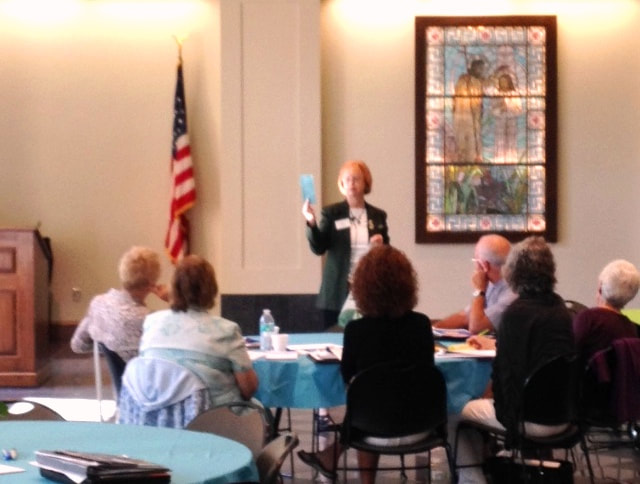
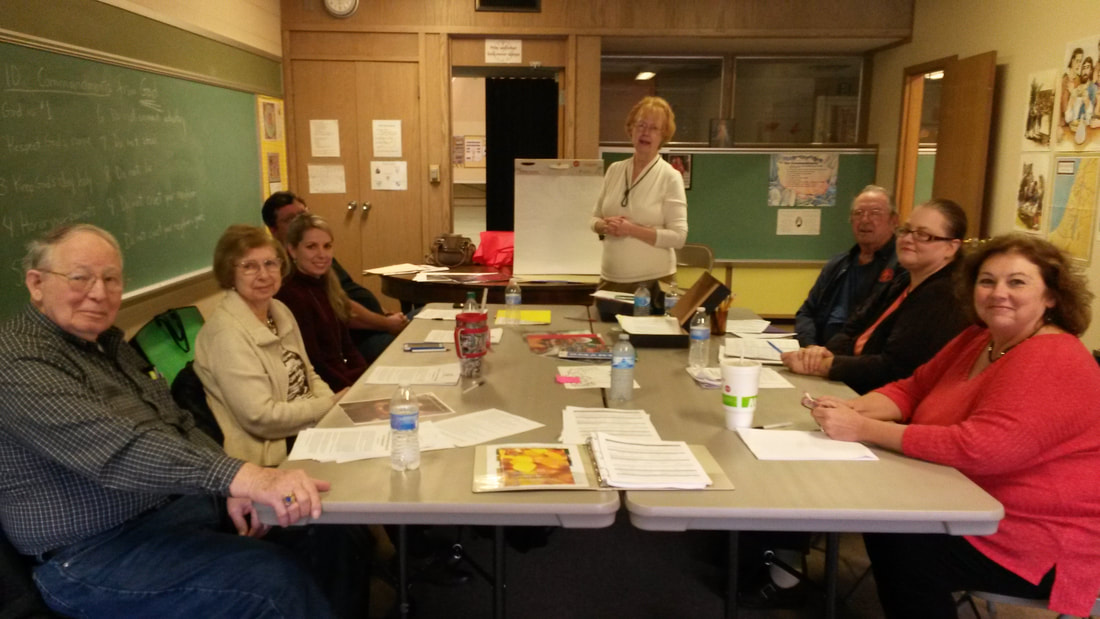
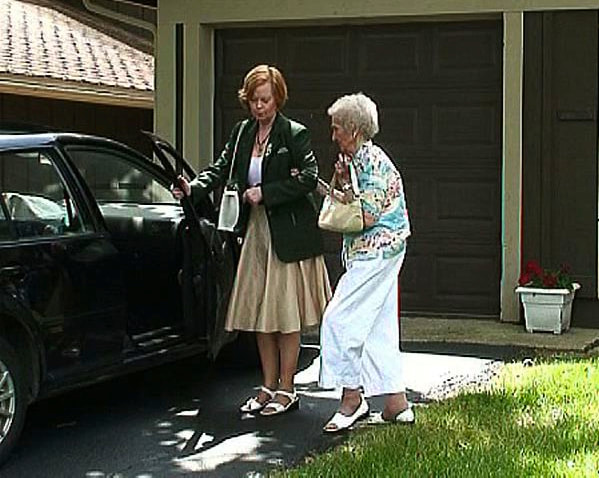
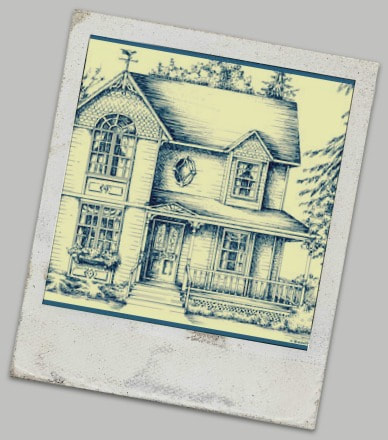
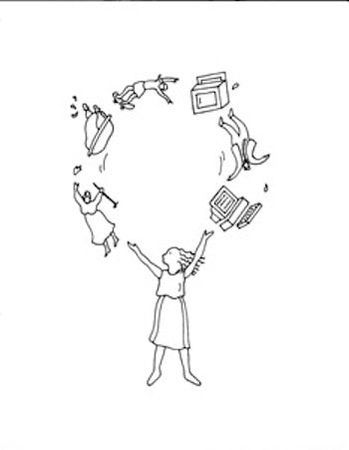
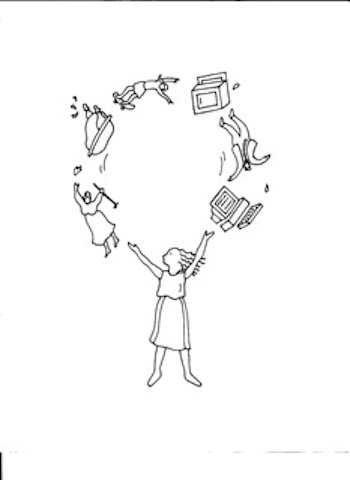
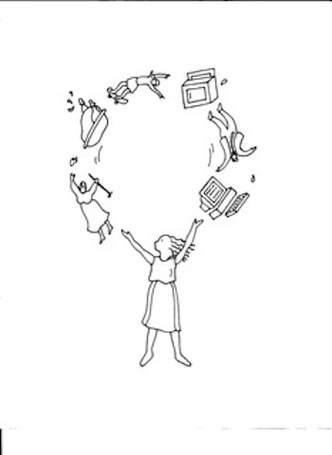

 RSS Feed
RSS Feed